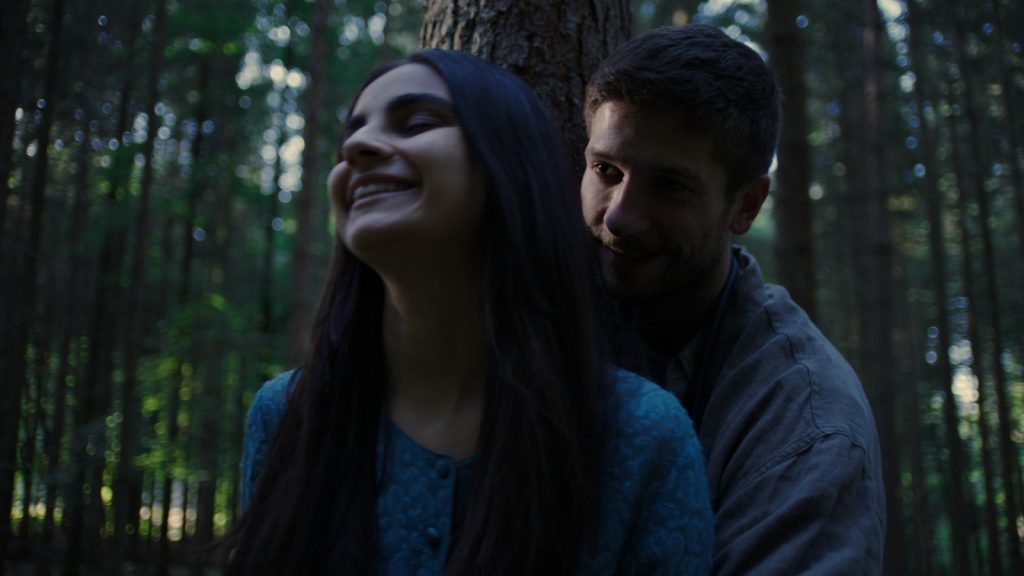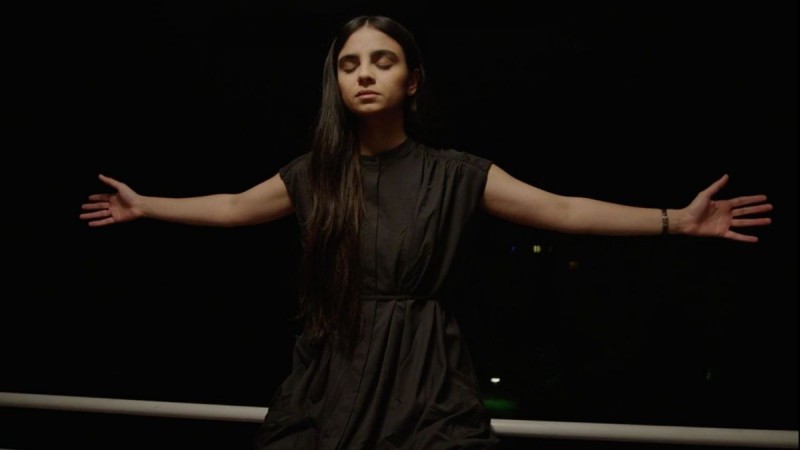Elaha is a film that tackles more about the ‘female gaze’, but the incredulous ways women’s sexuality has been re-written in history by men. Princess Kinoc reviews this film that is currently a part of the German Film Festival.
The first time I heard about the word hymen, I was in fifth grade, a standard part of the Filipino school curriculum aimed at educating students about reproductive health. What struck me wasn’t its scientific definition —- a thin tissue around the vaginal opening that naturally thins over time— but rather its societal significance, particularly the notion of it as a marker for virginity. The belief is that breaking it before marriage tainted one’s purity and virginity.
In Milena Aboyan’s debut film, the hymen plays a huge metaphor. Elaha is a young woman who is about to get married. As a Kurdish German, she has big shoes to fill and this marriage not only serves as the next step of her life, but to help her family rise from poverty too. The only problem is that she may have already broken her hymen too soon. As a young woman, she feels compelled to get it repaired before her fiancé, their families, and their small immigrant community finds out.


In many cultures and religious context, women always face immense pressure to fit the mold. In Catholic beliefs, this narrative of being faithful and ever so submissive traces back to Eve. It was always Eve’s fault. In the eyes of a patriarchal society like the Kurds, women are always thrown at the back and never celebrated as something as important as the first male child of the family. Elaha, being the first daughter, has had the responsibility to uphold her family and their society’s belief to marry into a well-off family like that of her fiancé Nasim’s (Armin Yeganeh) since birth.
Elaha takes us on a journey of self-discovery and the intimacy of her own scrutinized thoughts, and it is in this vulnerability and strength to walk into other people’s expectations is what makes Bayan Layla a powerful actor to look out for. With Milena Aboyan’s careful direction of a woman’s coming-of-age story, we do not see Layla’s Elaha get physically raped before our eyes, but the pain she feels at every decision that has already been made for her seems just as unequivocally similar.
Hymen repair surgery and virginity-testing has been increasingly popular for conservative communities like the Kurds. In 2022, the UK has acted and banned this to hopefully protect and safeguard young women’s vulnerabilities, which thankfully should have been an act that has been made years if not centuries ago. The pressure most women face when advised to take the surgery is just unbelievable. Why are women always succumbed to these kinds of belief when men do not even have a counterpart for a hymen on their genitalia? Virginity in men is also seen as the opposite but that’s a topic for a different film and time.
Elaha says a lot about the conflicts a young girl is experiencing and what our society has to say about her choices and autonomy. The film confronts the deeply ingrained norms and expectations that continue to shape the lives of women, even in the face of progress and enlightenment.
As we follow Elaha’s journey, it becomes evident that her struggle is not just personal, but a reflection of a broader societal issue. Milena Aboyan skillfully navigates this sensitive subject matter, inviting us to question the validity of such traditions and the impact they have on women’s lives. Bayan Layla delivers an exceptional performance that is nothing short of extraordinary. In one scene where she is required to pretend for a school activity, she suddenly breaks as if she is reminded that it’s another act she has to put on, like most of the things she has to face as a young woman. I liked that the only time she is herself is when she is with the people she trusts. Notice that the lighting and colours set into the film are different too: when she is pretending to be the obedient daughter and fiancé, the colours are darker and dull mostly using royal blue and dark green hues, but when she is with people she trusts, there is more daylight into the scenes and the light is tender and soft. It’s also empowering that there are women in the film who look out for her, even if it’s not from her own family.
In the closing scene, Elaha stands completely bare, embodying a profound sense of self-assurance and comfort in her own skin. This powerful image is a stark reminder of the many ways we must go to reshape the narrative on women’s bodies, especially those that are written by men. It depicts the importance of how we safeguard our youth to make empowering autonomous decisions for themselves.
KinoFest 2023, the German Film Festival runs from October 19 to 22 at the Gateway Cineplex 10. This review first appeared on the Goethe Institute website here.



